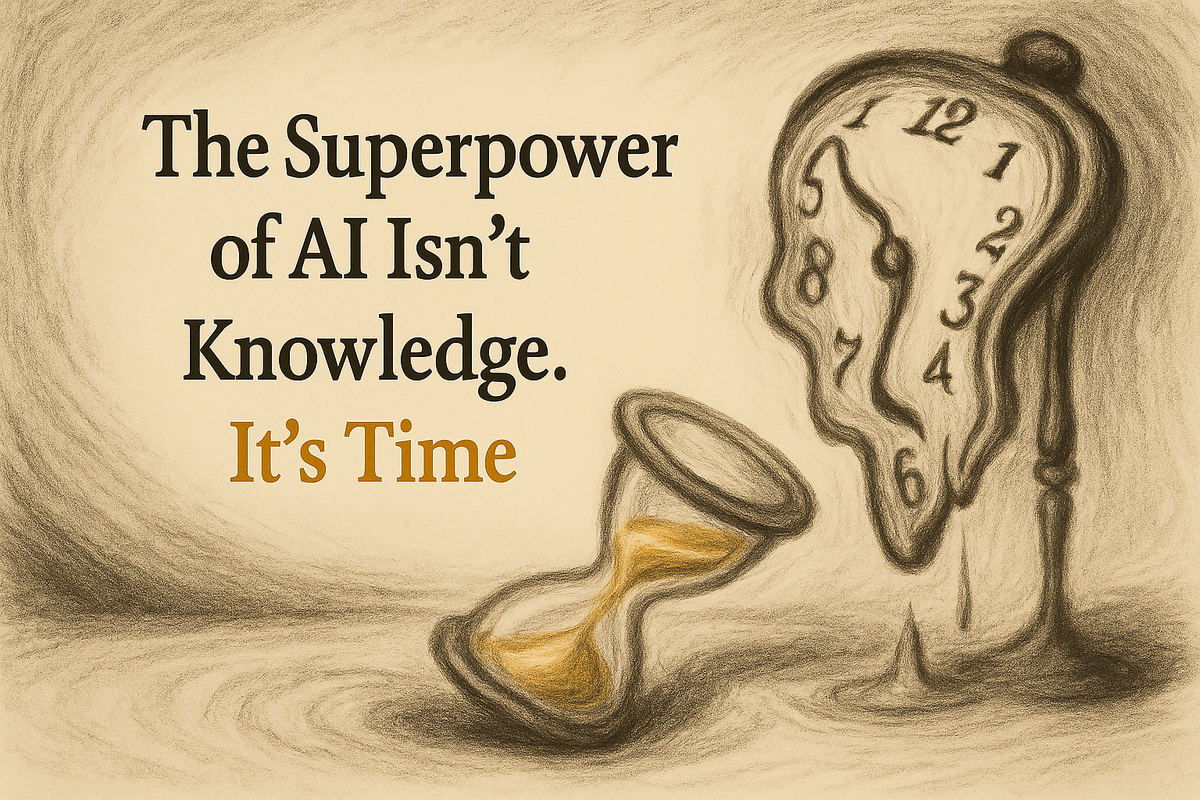The Superpower of AI Isn't Knowledge. It's Time
AI isn’t just changing how we do things—it's shifting how one relates to time itself. And when your relationship to time changes, everything else follows: money, power, attention, even our sense of who we are.

AI isn’t just changing how we do things—it's shifting how one relates to time itself.
And when your relationship to time changes, everything else follows: money, power, attention, even our sense of who we are.
Consider this. Historically, if you wanted more done, you paid someone else to do it. Hiring someone else's hours was your way of multiplying your own productivity. It wasn’t just about getting tasks done; it was a subtle form of power—directing other people's energy and attention toward your goals.
But AI flips this on its head. Now, tasks that once demanded entire teams—coding apps, exhaustive research, detailed writing—can be completed almost instantly, independently. When my wife first met ChatGPT, she rolled her eyes: "Another tech thing? More screens?" Yet curiosity soon turned into excitement. As a mother juggling two kids under five, her time isn’t just tight; it’s super precious. Suddenly, projects that typically stalled or sat on the shelf moved forward effortlessly. It was like magic to her. More than technology, it was about reclaiming time—her time. And frankly, time is our most valuable resource. It's limited and it's finite. So how can you get more of it, be more efficient with it?
A recent MIT study highlights that professionals using generative AI tools slash task times by as much as 60%. But beyond mere efficiency, there's a deeper shift underway. If AI does the tasks we used to delegate, what happens to those jobs—and the economic power tied to controlling others' time?
If commanding someone else’s time was once a measure of power, what happens when you don't need to command anyone—because AI sits right at your fingertips, patiently ready at any moment? What does it mean to leaders who once had to manage their team member’s feelings and motivations to accomplish certain tasks, when now you can have an AI do it that doesn’t care how you speak to it?
AI hands us back unprecedented amounts of time, forcing us to reconsider our relationship to work, money, and what truly matters. The onus will soon be entirely on us. Who are you when you’re not racing against the clock? What do you actually want to invest your attention in, now that you have a little more breathing room? What experiences matter most to you? Which relationships are you eager to deepen?
So the question isn’t: What can you do with AI? But rather What are you gonna do with the time that AI has made available to you?




Comments ()